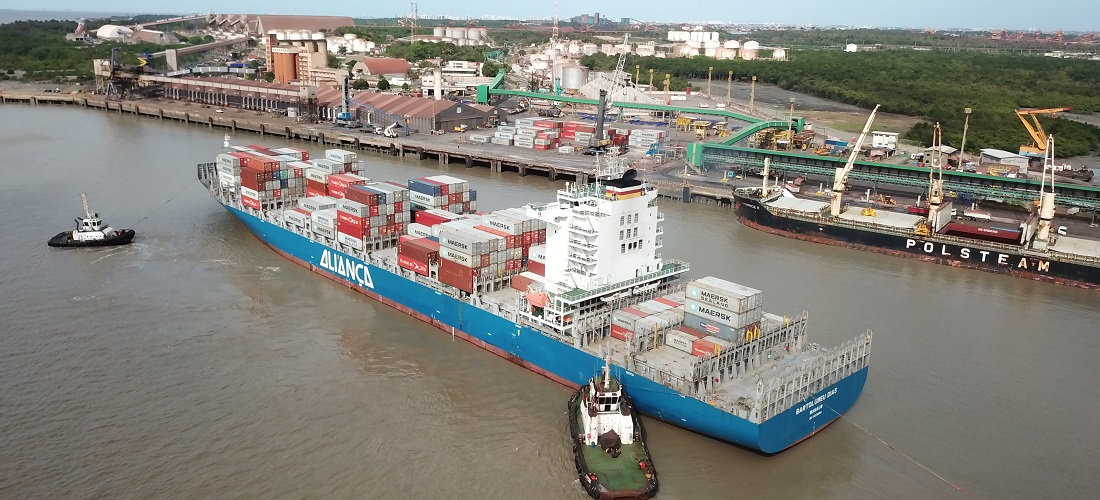
Port of Itaqui beats 2021 annual throughput
Dec, 05, 2022 Posted by Gabriel MalheirosWeek 202249
The month of December began with the Port of Itaqui breaking records. The public port based in Maranhao topped the cargo throughput recorded in the entire year 2021 (31,064 million tonnes) on Thursday, December 1st, with the unberthing of the Ji Xian Feng vessel from berth 100, loaded with 67,000 tonnes of corn. Itaqui saw 31.1 million tonnes of cargo year-to-date, from January to December 1st, making history again.
Grains were the main driver of these results, accounting for nearly 17 million tonnes (soybeans, corn, and bran), a 30% increase over the same period last year. Soy accounts for 11.2 million tonnes of this total, while corn accounts for 5.6 million tonnes. The rise in corn shipments is 89% higher than the volume registered from January to December 2021, when 2.9 million tonnes were registered.
“This result is a crowning achievement for our team and all those involved in the production chains that move Itaqui’s operations. Furthermore, it confirms the importance of the investments we have made to expand infrastructure to meet the growing market demands, primarily in Brazil’s northernmost ports,” says Ted Lago, president of the Port of Itaqui.
Investments should remain a priority of the Port of Itaqui, considering the expectation for the Brazilian harvest of grains, cereals, and legumes. According to an estimate by the IBGE – Brazilian Institute of Geography and Statistics, Brazilian production should reach the mark of 288.1 million tonnes in 2023, representing an increase of 9.6% compared to 2022 (25.3 million more).
In Maranhao state alone, soy planting should seize around 1.2 million hectares of land this year, up 5% from the planted area last year. And producers expect that grain production in the state – soy and corn – in 2023 will exceed the mark of 7.1 million tonnes.
Based on the volume indicated by the morning lineup for December 2022, the EMAP port authority expects a throughput of over 32 million tonnes by the end of the year.
-
Economy
Feb, 09, 2024
0
Brazil Secures New Export Authorizations for Açaí and Lamb Products
-
Ports and Terminals
Jul, 30, 2019
0
Port of Rio Grande begins new operation model
-
Economy
Sep, 15, 2023
0
Drought strikes: Uruguay economy shrinks by 2.5% in Year-on-Year analysis
-
Meat
Sep, 08, 2020
0
THE PHILIPPINES LIFTS EMBARGO ON IMPORTS OF BRAZILIAN CHICKEN


